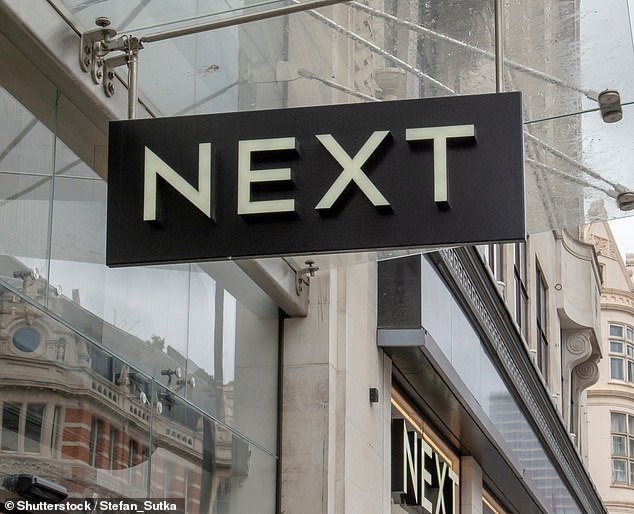Next is opposing a call from major investors at its annual meeting this week to reveal how many of its 40,000 staff are paid below the real living wage of £12.60 a hour.
Axa, Scottish Widows and the Greater Manchester Pension Fund are among a group of institutional shareholders that manage over £1 trillion of assets backing the resolution, which aims to increase transparency and improve conditions for shop floor workers.
The real living wage is higher than the national minimum wage and is set independently based on the cost of living. There is a separate higher rate of £13.85 for London.
More than 15,000 businesses are signed up to the voluntary scheme, including half of the FTSE 100 index.
‘The financial rewards of Next’s striking commercial success haven’t been shared with its workforce,’ said Catherine Howarth, chief executive of campaign group ShareAction, which tabled the motion.
Clare Richards of the Church of England Pensions Board, which also backs the resolution, added: ‘Greater disclosure by Next of its pay practices would demonstrate how the company seeks to balance the needs of their stakeholders and lowest paid workers.’

Under pressure: The real living wage is higher than the national minimum wage and is set independently based on the cost of living
The retail and wholesale sector is one of the largest employers of low-paid workers in the UK, with almost a quarter of its 3.5m workers paid below the real living wage.
‘Retailers are failing to support their workers with a real living wage, leaving hundreds of thousands of people in the sector struggling to make ends meet,’ said Howarth.
But the move comes as companies reel from the Government’s £25billion hike in employers’ National Insurance, dubbed a ‘tax on jobs’ by critics.
The national minimum wage has also just gone up to £12.21 an hour, giving more than 3m low-paid workers a 6.7 per cent pay rise.
The minimum wage for workers aged 18 to 20 also increased from £8.60 to £10 an hour, a rise of more than 16 per cent and the largest increase on record.
Next, which expects to make more than £1billion this year, opposes the resolution at the meeting because of the ‘significant cost implications’.
It also wants ‘flexibility’ to set its own pay rates, rather than outsourcing the decision to a third party.
Setting wage rates was ‘a fine balance between the interests of investors (who are ultimately savers and pension funds), consumers and employees (many of whom are also savers and investors),’ Next added.
ShareAction is also targeting Marks & Spencer and JD Sports with a similar resolution at the retailers’ annual general meetings (AGMs) in July.
Next’s AGM, which will be held on Thursday at a hotel in Leicester, promises to be a lively affair.
DIY INVESTING PLATFORMS

AJ Bell

AJ Bell
Easy investing and ready-made portfolios

Hargreaves Lansdown

Hargreaves Lansdown
Free fund dealing and investment ideas

interactive investor

interactive investor
Flat-fee investing from £4.99 per month

InvestEngine

InvestEngine
Account and trading fee-free ETF investing
Trading 212
Trading 212
Free share dealing and no account fee
Affiliate links: If you take out a product This is Money may earn a commission. These deals are chosen by our editorial team, as we think they are worth highlighting. This does not affect our editorial independence.






